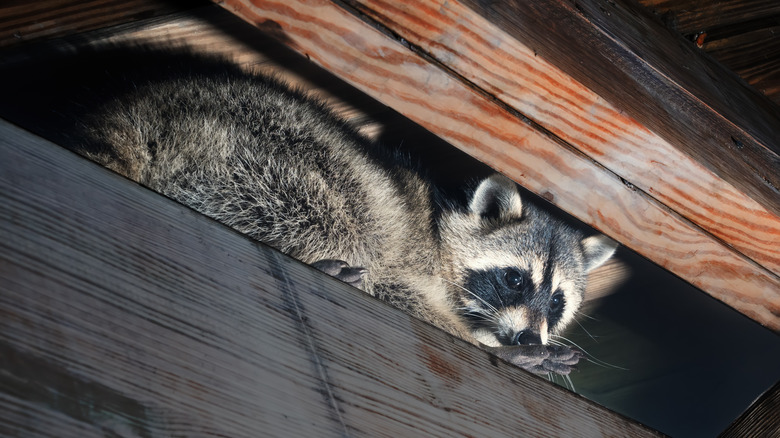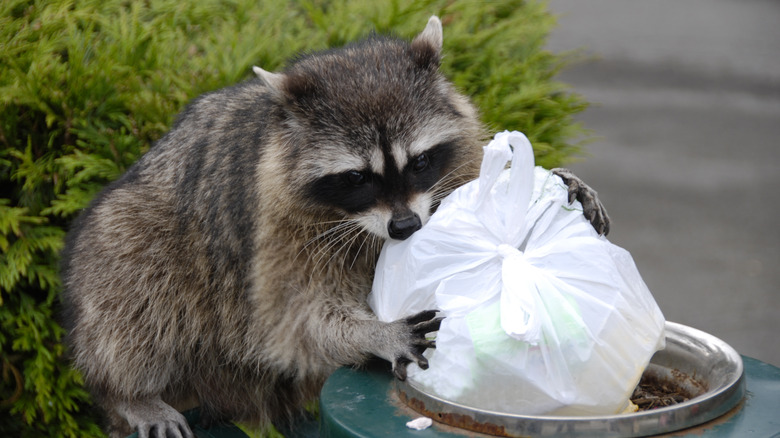What It Means If Your Home Smells Like A Wet Dog When You Don't Have Pets
There's no mistaking the smell of wet dog in the home. The foul odor that can waft through your rooms when Fido runs in after a romp outside. If you have a dog, it makes sense to occasionally have this smell in your house because pets can get stinky for one reason or another. It's a different story, however, if you have a pet-free household and still detect the wet dog smell. It might surprise you, but this could be a sign that you may have a hidden pet, in the form of a raccoon infestation.
A raccoon's natural scent glands, located in its tail, give off the stale smell of a drenched canine. Residue from the trash, plus the stink of feces and bacteria, can also cling to their coat, which can create a foul smell in your home. A wet dog odor is just one sign of a raccoon infestation, though, and there are several others you should know.
Wet dog smell and other signs of a raccoon infestation
In addition to smelling like a wet dog, raccoons can bring other odors to your home. For instance, if you regularly smell feces or urine but can't pinpoint the cause, you might have a raccoon infestation. Raccoons urinate and defecate in "latrines," returning to their chosen spot like a toilet, depositing their waste in the same spot every time. Latrines appear in the wild, but also in residential homes, such as in unsealed attics, roofs, garages, and decks. Depending on their location, the latrines' smell can leak through your HVAC system like a stink bomb.
According to Critter Control, additional signs you may have raccoons include damage to your home's interior or exterior. This damage might come in the form of chewed wire, ripped insulation, missing shingles, and clawed boards. You may also see tracks and overturned trash cans as indicators of these masked furry bandits. Whatever the signs, having a raccoon in your home can be a serious health risk as they can carry diseases like rabies and roundworm. When you have an infestation, you need to take several steps to get rid of raccoons.
How to avoid a raccoon infestation and get rid of them
You can minimize the chance of raccoons and their accompanying wet dog odor by closing up possible entry points with mesh or wire. Next, look to remove any possible attractants. You can keep raccoons out of your trash can by fully securing the lids, but you may have less subtle attractants luring the animals to your home. Raccoons look for food, water, and shelter, like any other animal. Your pet's food bowls, a pond feature, and leaky pipes are all enticing to raccoons.
If you've already spotted a raccoon in your garden or backyard, take action to prevent them from making themselves at home in your attic, garage, or other areas. Installing lights can keep raccoons away from your yard, as can planting things they hate, such as tomatoes, spicy peppers, and cucumbers. You might also bang pots and pans, shout, or play annoying sounds to scare away raccoons. If it's too late and you have an infestation, then avoid approaching the raccoon on your own, and instead, contact a wildlife removal service or your local animal control department for safe removal.


